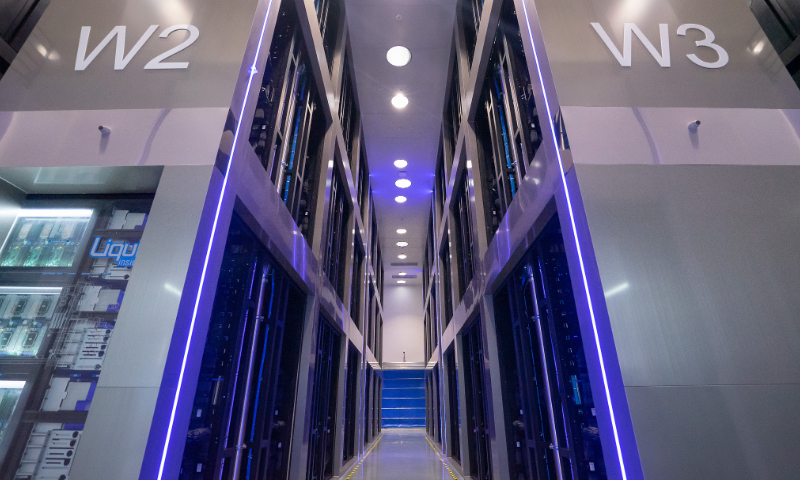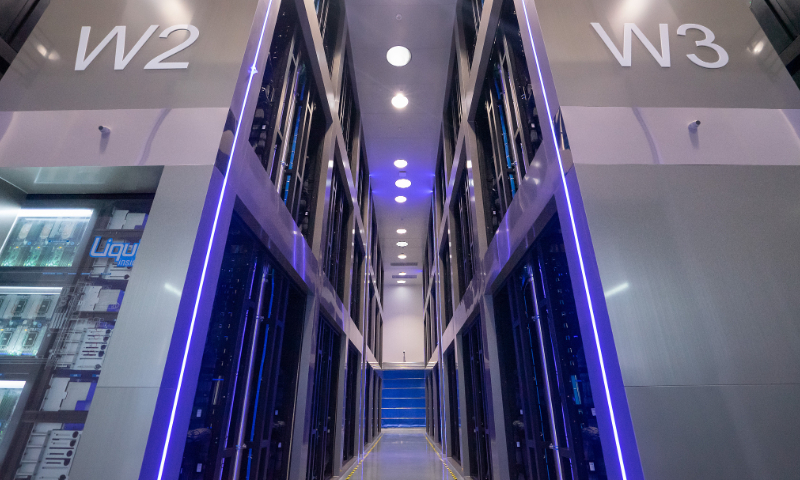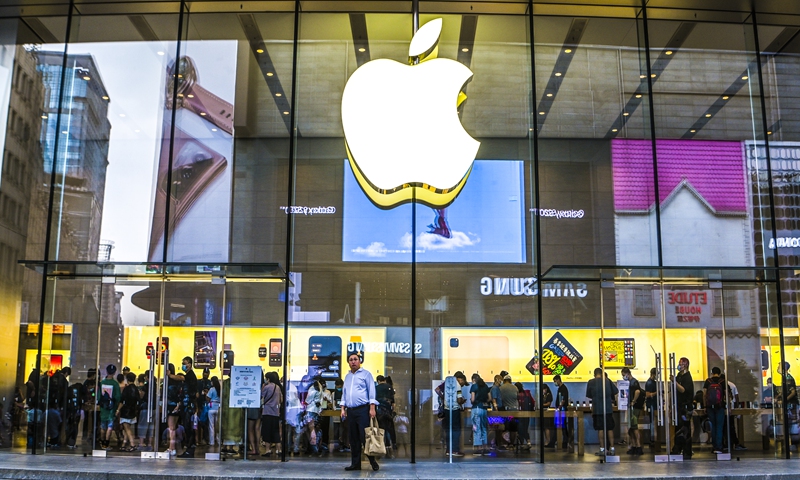
AI Photo: VCG
China and France released on Monday Paris time a joint declaration on artificial intelligence (AI) and global governance during Chinese President Xi Jinping’s state visit to France, the Xinhua News Agency reported on Tuesday.
Experts said that the joint declaration will pave the way for practical cooperation, and serve as a model for enhancing AI exchanges and partnerships between China and other European countries.
Signing the declaration is also seen as a challenge to US dominance in the field of AI, highlighting the limitations of hegemonic ambitions in the fast-evolving AI landscape. The era of the US attempting to assert AI global dominance is deemed unsustainable, experts said.
The declaration noted that President Xi and French President Emmanuel Macron firmly believe in the importance of continued dialogue to provide lasting solutions to global challenges. One of the highlights of the declaration is that China and France are committed to taking effective measures to address risks associated with this technology.
Both countries are also on the same page about the basic rules for AI governance. They agreed to take into account the flexibility required for the rapid development of technology, while providing necessary protection for personal data, the rights of users and the rights of users whose work is used by AI. They also committed to promoting secure, reliable and trustworthy AI systems, adhering to the principle of “AI for good.”
Zeng Yi, a professor of AI at the Chinese Academy of Sciences and also an expert of the UN Secretary-General’s Advisory Body on AI, told the Global Times on Tuesday that this consensus reflects the alignment of both parties on issues including ethics, security and the governance of AI at a fundamental level, laying the foundation for pragmatic and in-depth cooperation between the two countries in the field of AI governance.
Cooperation between China and France can drive collaboration in the field of AI between China and Europe as a whole, Liu Wei, director of the human-machine interaction and cognitive engineering laboratory at the Beijing University of Posts and Telecommunications, told the Global Times on Tuesday.
Liu Wei said both sides have great potential in working together on research into the development and application of AI technology, as well as laws and regulations.
Liu Baocheng, director of the Center for International Business Ethics of the University of International Business and Economics, told the Global Times that both sides have significant complementary relationships in this field. Also, China’s rapid development of new quality productive forces presents an opportunity for France to participate in China’s development.
The next step will involve greater participation by research institutions and businesses to ensure the true implementation of the declaration Liu Baocheng noted.
Through closer AI governance cooperation, both sides can systematically share more solutions to address risks, such as privacy breaches and the lack of an effective ethical AI security framework, thereby minimizing and avoiding common risks and challenges facing all of humanity, Zeng said.
Another keyword mentioned in the declaration is “cooperation.” It said that international cooperation in AI governance will rely on work conducted at the UN level, and China and France will help strengthen the network capabilities of all countries, especially developing countries, to address network threats related to AI development and bridge the digital divide among developing countries.
The joint declaration between China and France conveyed an image of responsible major powers to the world, presenting an overall approach to global AI governance, Liu Baocheng said.
Zeng said the declaration is in line with China’s Global AI Governance Initiative, and the signing of the declaration is also one of the representative efforts China has made at the specific implementation level as a responsible AI power, after having proposed the initiative.
Regarding the idea of China-France cooperation to counter the “AI hegemony” of the US, Liu Baocheng said that in the field of AI, the US has been seeking to dominate the global rules system. However, the reality is that each country has its own strengths, and the hegemonic mind-set of the US is unlikely to be realistically delivered. The attempt by the US to rule the world with AI is a thing that is not sustainable, he noted.










